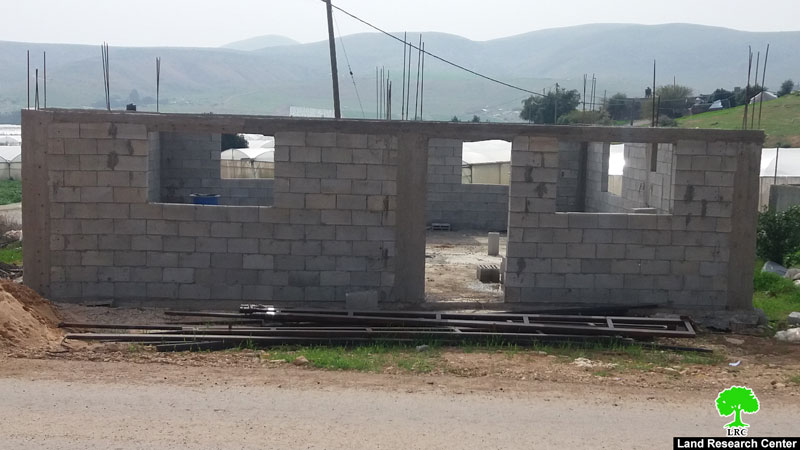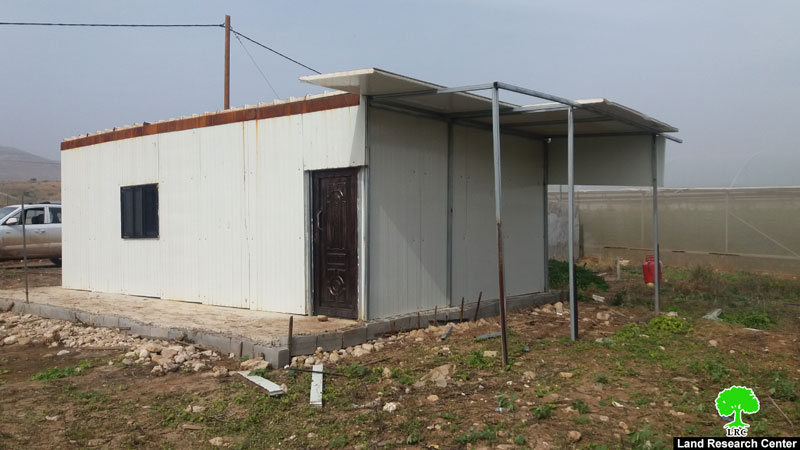2018-02-06
Stop-Work orders in the Nablus village of Furush Beit Dajan
Violation: serving stop-work orders
Location: Furush Beit Dajan village
Date: February 06, 2018
Perpetrators: Planning and Construction Committee- Israel Civil Administration
Victims: two Palestinian families
Details:
The so-called Planning and Construction Committee- Israel Civil Administration served on February 06, 2018 stop-work orders on residences in the village of Furush Beit Dajan on the claim of "unlicensed construction" within area classified "C" according to Oslo Accords, which is under Israeli control.
The following table shows information about the affected owners and properties:
Affected citizen
|
Family
|
Minors
|
Aream2
|
Nature of structure
|
Samir Haj Mohammad
|
5
|
3
|
100
|
Under construction house
|
Abdelkarim Abu Jeish
|
5
|
1
|
60
|
Caravan
|
Total
|
23
|
12
|
350
|
|
Source : Field observation- Department of Monitoring Israeli Violations- Land Research Center-2018
According to the order, the affected owners were given a twenty one day deadline to complete all licensing procedures. This comes in time with the hearing session of Planning and Construction Committee- Israel Civil Administration in the Israeli court of Beit El colony to discuss the legal status of the notified structures.
Noteworthy, the area of Furush Beit Dajan is deprived of basic life needs including services such like water, electricity roads, clinics and telecommunication network. This Israeli practice of deprivation aim at pushing residents out of the area to become an interest for colonial plans.
The residence of citizen Samir Haj Mohammad
The residence of citizen Abdelkarim Abu Jeish
About Furush Beit Dajan:
It is located in the middle of Palestinian Jordan Valley and is considered an extension of Beit Dajan village, east of Nablus. It has a total population of 1500 people, 50% of which descend from Bedouin origins; sheep grazing and agriculture are the main sources of income for such people
The village has a total land area of 14000 dunums; the occupation confiscated 12000 dunums of it for the sake of establishing the colony of al-Hamra in the western side of the village, the colony of Mekhora in the southern part and a military camp in the eastern side of it.
The village lacks a master plan; a thing that allowed dozens of residences to be notified by the occupation in addition to other dozens that were demolished as a result.
The village has about 450 dunums of protected vegetables and 1600 dunums of citrus plantation.

The contents of this document is the sole responsibility of LRC and can under no circumstances be regarded as reflecting the position of the European Union


